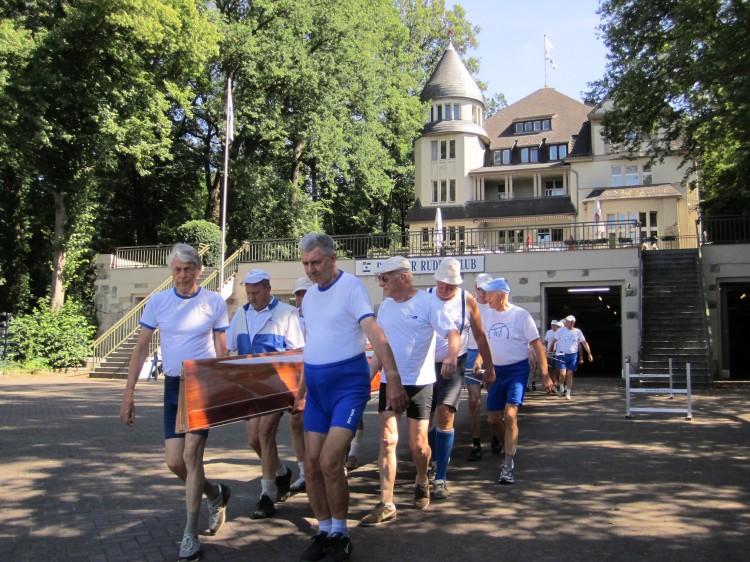BERLIN—In the packed clubhouse at the Berlin Rowing Club excited shouting turns to tension as the British eight-man boat advances, endangering the German lead. With 400 meters left, the German boat catches up and finally reaches the finish line first—Germany wins the gold! The cheering reaches a crescendo as club members jump up, yelling the rowers’ names.
The German eight-man crew had won three world cup races in a row. With that experienced and growing national attention, they faced considerable pressure to succeed in the 2-km race Wednesday on Dorney Lake near Eton at the London Olympics.
Nowhere were expectations higher than at the Berlin Rowing Club (Berliner Ruder Club), which had two of its stock on the crew—Andreas Kuffner and cox Martin Sauer—and no shortage of former Olympic medalists in the clubhouse crowd watching the race.
Germany has a proud legacy in rowing. It has won 60 gold medals, more of any nation in Olympic history. Nonetheless, Wednesday’s win was first time in 24 years the men’s eight came first.
One reason why the Germans excel at the sport can be found at the club in southwest Berlin.
Founded in 1876, the club is Berlin’s oldest and also the country’s most successful. Over the course of 137 years, members have brought home 90 medals from the Olympic Games, World Cup and European Cup. The last time gold was at the Olympics in 1996.






